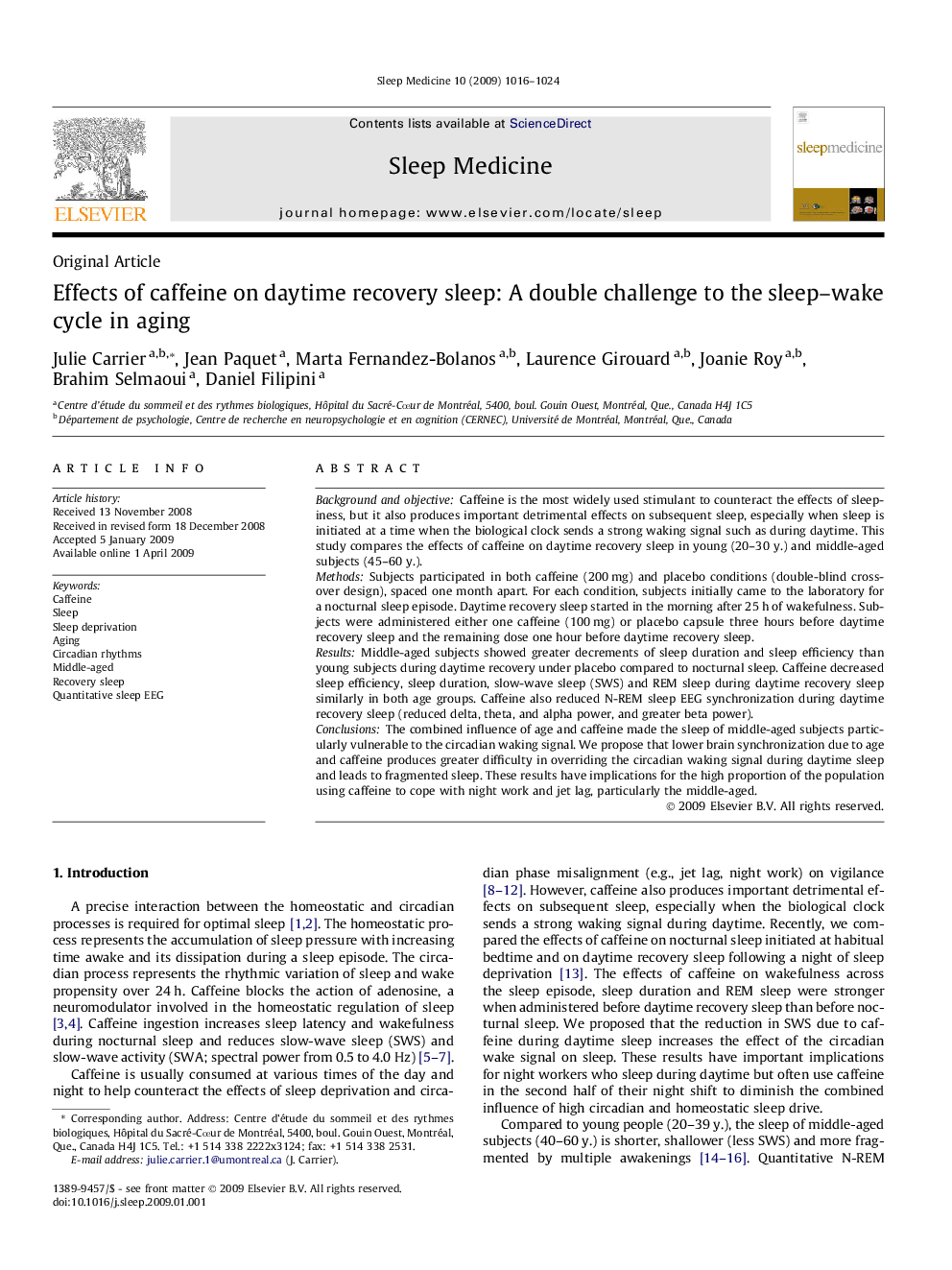| کد مقاله | کد نشریه | سال انتشار | مقاله انگلیسی | نسخه تمام متن |
|---|---|---|---|---|
| 3177270 | 1200293 | 2009 | 9 صفحه PDF | دانلود رایگان |

Background and objectiveCaffeine is the most widely used stimulant to counteract the effects of sleepiness, but it also produces important detrimental effects on subsequent sleep, especially when sleep is initiated at a time when the biological clock sends a strong waking signal such as during daytime. This study compares the effects of caffeine on daytime recovery sleep in young (20–30 y.) and middle-aged subjects (45–60 y.).MethodsSubjects participated in both caffeine (200 mg) and placebo conditions (double-blind cross-over design), spaced one month apart. For each condition, subjects initially came to the laboratory for a nocturnal sleep episode. Daytime recovery sleep started in the morning after 25 h of wakefulness. Subjects were administered either one caffeine (100 mg) or placebo capsule three hours before daytime recovery sleep and the remaining dose one hour before daytime recovery sleep.ResultsMiddle-aged subjects showed greater decrements of sleep duration and sleep efficiency than young subjects during daytime recovery under placebo compared to nocturnal sleep. Caffeine decreased sleep efficiency, sleep duration, slow-wave sleep (SWS) and REM sleep during daytime recovery sleep similarly in both age groups. Caffeine also reduced N-REM sleep EEG synchronization during daytime recovery sleep (reduced delta, theta, and alpha power, and greater beta power).ConclusionsThe combined influence of age and caffeine made the sleep of middle-aged subjects particularly vulnerable to the circadian waking signal. We propose that lower brain synchronization due to age and caffeine produces greater difficulty in overriding the circadian waking signal during daytime sleep and leads to fragmented sleep. These results have implications for the high proportion of the population using caffeine to cope with night work and jet lag, particularly the middle-aged.
Journal: Sleep Medicine - Volume 10, Issue 9, October 2009, Pages 1016–1024